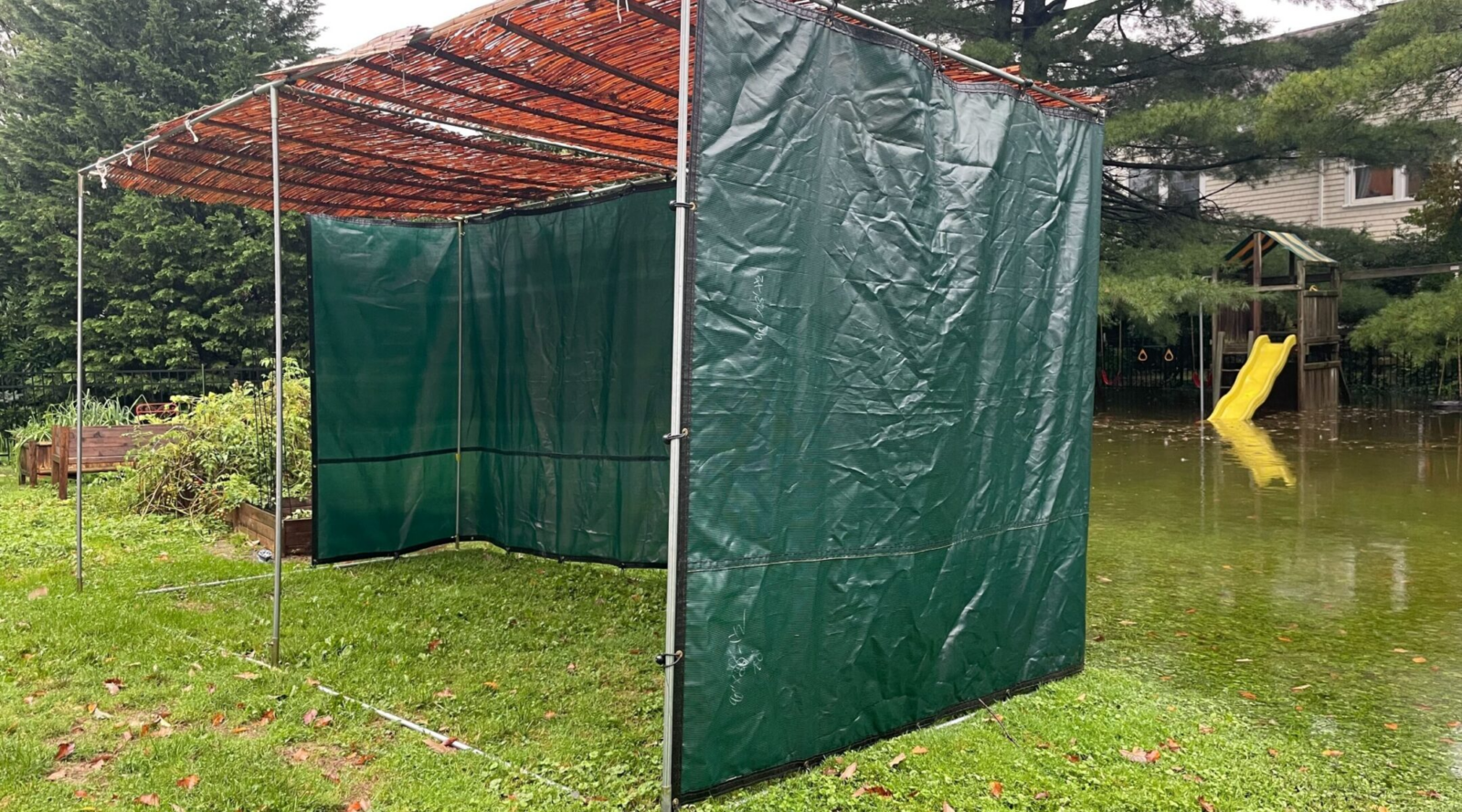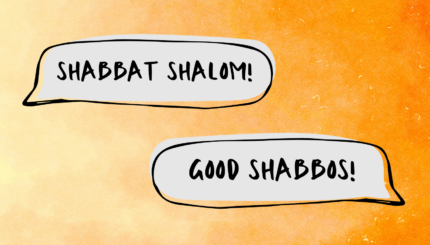Question: I’ve heard that you don’t have to eat in the sukkah if it’s raining, but what if it’s really cold or oppressively hot? What about snow?
–Ezra, London
Answer: Something tells me you’re a Weather Channel junkie, Ezra. Are you predicting a cold front followed by a heat wave followed by a blizzard?
The rules about sitting in the sukkah (both for meals, and generally for going about your life during Sukkot) suggest that we should do everything possible to spend as much time as possible in the sukkah. But, the Mishnah acknowledges that sukkot comes at a time when, in many parts of the world, we’re likely to experience rain. So what to do?
According to the mishnah, in Sukkah 2:9, we’re allowed to leave the sukkah when it’s raining hard enough that the water would spoil our food (the specific example used is porridge, a food that’s easily spoiled). This position was expanded on in the Shulhan Arukh (Orah Hayim 639:2) which ruled that if it’s too cold to eat in the sukkah, or if eating in the sukkah would cause you discomfort, then you are exempt from performing the mitzvah (commandment) of eating in the sukkah.
What constitutes discomfort? How cold is too cold? Well, it’s subjective. I’ve eaten in the sukkah while wearing gloves many times, and while that wasn’t the most comfy situation I’ve ever encountered, it was fine. I’m not sure if I’d eat in the sukkah in the snow, but I think I would brave extreme heat (after all, the s’khakh, or greenery that acts as a roof, provides excellent shade). It’s really up to you — if eating in the sukkah seems dangerous because of the elements, you should err on the side of caution. But if it’s just a little chillier and windier than you had hoped, pull on another sweater and see if you can brave the storm.
According to the Mishnah, the most important night to sit in your sukkah is the first night of Sukkot, so if it’s cold or rainy on the first night, some people stick it out as long as they can. Others just make sure to come back outside as soon as the rain has stopped to eat some bread and say the blessing for sitting in the sukkah. On all the other nights of Sukkot, it’s best if you can be outside long enough for Kiddush and some bread, but if that’s not possible, don’t beat yourself up. With seven days of Sukkot, you’re bound to get a chance to enjoy a meal in your temporary dwelling.
Have a happy (and temperate) Sukkot!
sukkah
Pronounced: SOO-kah (oo as in book) or sue-KAH, Origin: Hebrew, the temporary hut built during the Harvest holiday of Sukkot.
Sukkot
Pronounced: sue-KOTE, or SOOH-kuss (oo as in book), Origin: Hebrew, a harvest festival in which Jews eat inside temporary huts, falls in the Jewish month of Tishrei, which usually coincides with September or October.



